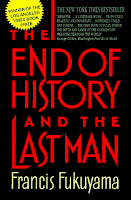Three things mark this election as unusual.
One is the remarkable paucity of actual policy debate. Yes, there’s been some to and fro on housing,
a modicum of difference on tax generation, but outside of the narrow-cast
debate on the economy very little of substance has been thriving.
Defence? Michael
Fallon wants us to fear the SNP’s bid to get rid of Trident, but offers little
in the form of positive defence policy for himself. Foreign Affairs? Ed Miliband briefly attended to an area that
has never been an interest of his to accuse David Cameron of responsibility for
migrant deaths. But foreign affairs
spokesmen have been so low-key as to be rendered unpersons, barely able to stop
the traffic in their own constituencies, never mind the rest of the globe
around which they potter so un-noticed. Education?
Once hugely controversial, with Michael Gove’s disappearance from the
issue it has sunk into the backwaters of little regarded speeches and rarely
referenced manifesto promises that vary imperceptibly. What about Health? Well, yes, it’s a big issue, and that one has
received coverage, but only in the “we all want more health care but aren’t
sure how to pay for it” sense. Welfare
has just hit the headlines because Danny Alexander wants to fire the smoking
gun of Tory plans to cut it drastically.
Otherwise, everyone has been keen to keep their plans under wraps.
There has been some notion that this has been a much more
localised election instead, although such localisation often extends little
further than objections to new housing plans and a desire for more health
provision (as was the case in a true blue constituency I was recently
canvassing in).
Two is the impending indecisiveness of the final result. If this election produces the second hung
parliament in a row, it will have dealt a decisive blow to the idea that our
favoured First Past the Post system of voting essentially secures single-party
governments (misleadingly also often seen as “strong”). Since this has long been one of the main
reasons for continuing to uphold a manifestly disproportionate electoral
system, it may be reasonable to question what the other virtues of FPTP might
be, especially if the other consequence of it materialises – the forming of a
government by the second placed party in terms of vote share and possibly seats.
Like the Scottish referendum, the AV
one may also be up for re-issue sooner than we could have imagined.
Mention of Scotland brings us, of course, to the third
characteristic of this election. The role of the Scottish National Party, and
the future of Scotland itself, has played
a larger part than ever before. For
the first time in over a century, a block of MPs from one part of the United
Kingdom have the opportunity to significantly influence the agenda of the rest
of the UK in their favour. Like the
Irish Nationalist politicians before them, no-one doubts that, whatever Nicola
Sturgeon may be saying for election purposes, the aim of the SNP block in the
House of Commons will be to ultimately secure independence for Scotland. It is true that the party’s extraordinary
success this time round has arisen in part from the failure of the three
UK-wide parties to maintain the engagement of the Scots in the mundane routine
of legislation. It is also true that the
once dominant Labour Party has neglected its fiefdom too much and finally sent
it revolting – the failing of one-party systems the world over. But it is the issue of devolution which has
really spurred the SNP rise, keeping the issue of Union firmly on the Scottish
agenda despite the rejection of independence last year.
Nonetheless, the eventual impact of the SNP has been
exaggerated. They may become the third
largest party in the Commons, but their actual ability to sway the agenda there
is far more limited than the campaign paranoia has suggested. George Eaton makes the point well in the New
Statesman. Nicola Sturgeon’s absolute
refusal to countenance a Conservative government has in reality limited her
room for manoeuvre with respect to a Labour one. She cannot act against a Labour government
without incurring the significant wrath of those of her supporters who take her
anti-Tory commitments at face value. Ed
Miliband has actually got a pretty free space for action without SNP
interference.
For all the Scottish noise and fury though, it is still
England which is at the heart and centre of the election, and it is English
issues – some institutional and long-term – which have moulded its course. England remains an ultra-centralised country
which does not have its own dedicated government. It is a country where localism fails to
engender any local support, but scepticism towards the centre also remains
endemic. To have a good understanding of
England today requires a strong sense of the country’s history and
evolution. Robert Tombs, the author of
the sort of brilliant, sympathetic and perceptive study that England is not
often fortunate enough to have, has produced a wonderful distillation of some
of the key aspects of England’s past that shed light on our current
election. It is an article that bears
further comment, but for now I urge you to read it at the New Statesman’s site.
How the three characteristics above play out after May 7th
is part of the fascination of the present contest. We may know the allocation of seats on May 8th.,
but I suspect we will still be some way off knowing which party, and which
leader, is going to be able to take us through the next few, constitutionally
turbulent, years.



